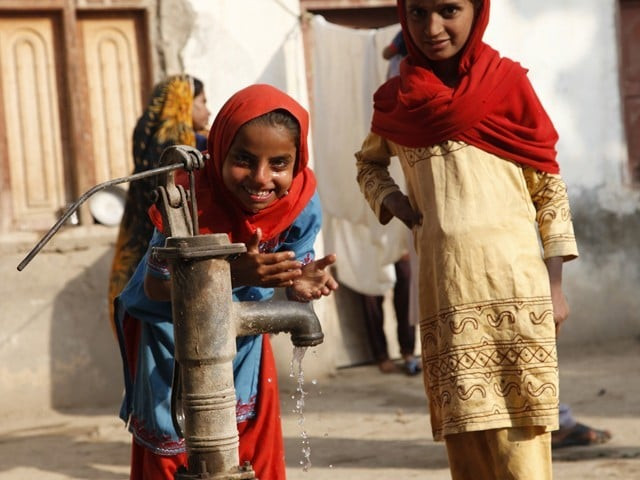Hard to stomach: Gastro epidemic plagues Jatoi villages
Over 100 cases have been brought to hospitals in three days and doctors fear hundreds more have been affected.

A major gastroenteritis epidemic has been witnessed in the Jatoi district as over 120 cases of stomach related diseases have been reported in the area in the last three days.
According to hospital officials, 44 people are currently in critical condition and have been referred from the THQ hospital in Jatoi to the main DHW hospital in Muzaffargarh. THQ medical officer Dr Saleem Leghari said that most of the patients belonged to rural settlements from Jatoi. “We have also had confirmations from Water and Sanitation Authority (Wasa) officials that the water supply in this area had been compromised as several pipes were broken in parts and thereby many people have been drinking sewer water for quite a few days,” he said. Leghari said “It usually takes 2-3 days for sewer water to completely compromise the immune system and many of the people being brought in to use have been suffering for long. They are already in critical condition but they didn’t come in sooner,” he said.
Hospital authorities in Muzaffargarh said that they were currently organising separate camps in rural settlements to provide residents with clean water until Wasa and tehsil authorities repaired the damages to the water supply. “We are also trying to guide people about the disease. They need to report symptoms as early as possible. Many of the critical patients are unlikely to survive because they didn’t come in earlier,” said World Health Organization (WHO) administrator Safdar Ameen.
Muzaffargarh District Health Officer (DHO) Dr Sadeeq Saqib arrived on the spot and has begun monitoring the situation on the ground. Local tehsil officers and WHO workers under the supervision of Dr Arif have also been active in the area and have organised medical camps to treat patients. “Hospitals simply cannot take the patient load.
There are nearly 300 people who are suffering in the villages and the hospitals have begun turning them away,” Dr Arif said.
Deputy DHO Dr Iqbal told The Express Tribune that medical teams had given the victims tablets to clean the water supply and had deployed water tankers to rural settlements surrounding the villages. Doctors have expressed concerns that more people could die from the outbreak as the number of patients continues to rise.
“The longer the water supply remains polluted the more people will be affected. The authorities need to repair the damages as soon as possible,” he said.
Relatives of the victims blamed the health department and said that they had been sleeping on the job. “When we went to the hospital there was no medication, they didn’t even have a saline drip. When the numbers began to rise they called in a shipment,” patient Afzal said.
TMA officials said that the monsoon season increased the risks of the water supply being compromised. “If it continues to rain and the water floods the streets, then it will be harder to fix the pipes in time,” said Dr Leghari.
Published in The Express Tribune, July 5th, 2011.



















COMMENTS
Comments are moderated and generally will be posted if they are on-topic and not abusive.
For more information, please see our Comments FAQ